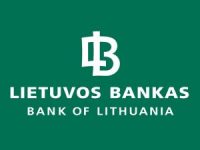Since the Bank of Lithuania began implementing the European Central Bank’s (ECB) pandemic emergency purchase programme (PEPP), the number of auctions for Republic of Lithuania government bonds has doubled, while the overall volume of purchases has grown several times. This April, the Bank of Lithuania has so far purchased a total of €370 million in government bonds on the secondary market and through bilateral transactions, aiming to inject more money into the real economy hit by the COVID-19 shock.
“The first results of the euro area-wide purchases under the PEPP have shown that we will also be able to inject more funds into Lithuania’s economy, as they are particularly needed under the current circumstances. However, Lithuania could make more use of the PEPP if local firms were more active in issuing Eurosystem-eligible debt instruments,” said Jonas Kanapeckas, Director of the Banking Service of the Bank of Lithuania.
In April, the Bank of Lithuania, together with the ECB and other euro area national central banks, started implementing the PEPP, which has an overall envelope of €750 billion. To this end, the Bank of Lithuania’s auctions are currently conducted twice (instead of once) a week. In the first three April auctions, the central bank purchased a total of €162.6 million in government bonds – almost six times the usual monthly average.
By purchasing government bonds, central banks transmit accommodative monetary policy. It affects the financial system and the economy as a whole through the following channels: (i) helps to maintain long-term interest rates at low levels both on government bonds and, indirectly, corporate bonds; (ii) ensures the stability of the government bond market as governments borrow more to directly support firms and employees affected by the quarantine; (iii) creates additional incentives for companies, allowing them to borrow through bond issuance; (iv) provides more liquidity to banks that sell government bonds, thus facilitating refinancing of loans during this challenging period and encouraging lending to the economy; (v) provides investors that sell government bonds with funds and incentives to invest in other financial assets (e.g. other debt securities or shares), thereby transferring the positive effect of the accommodative monetary policy to other financial markets.
The PEPP also provides for purchases of private sector securities, yet their issuance in Lithuania is not sufficient for the country’s economy to fully exploit the programme’s accommodative potential. Firms established in Lithuania could raise funds not only through bank lending but also by issuing debt securities, thus allowing the Bank of Lithuania and the Eurosystem as a whole to contribute through purchase programmes and strengthen the demand for eligible bonds.
The potential for increasing liquidity with monetary policy measures was further enhanced last week when the ECB announced a package of temporary collateral easing measures.












